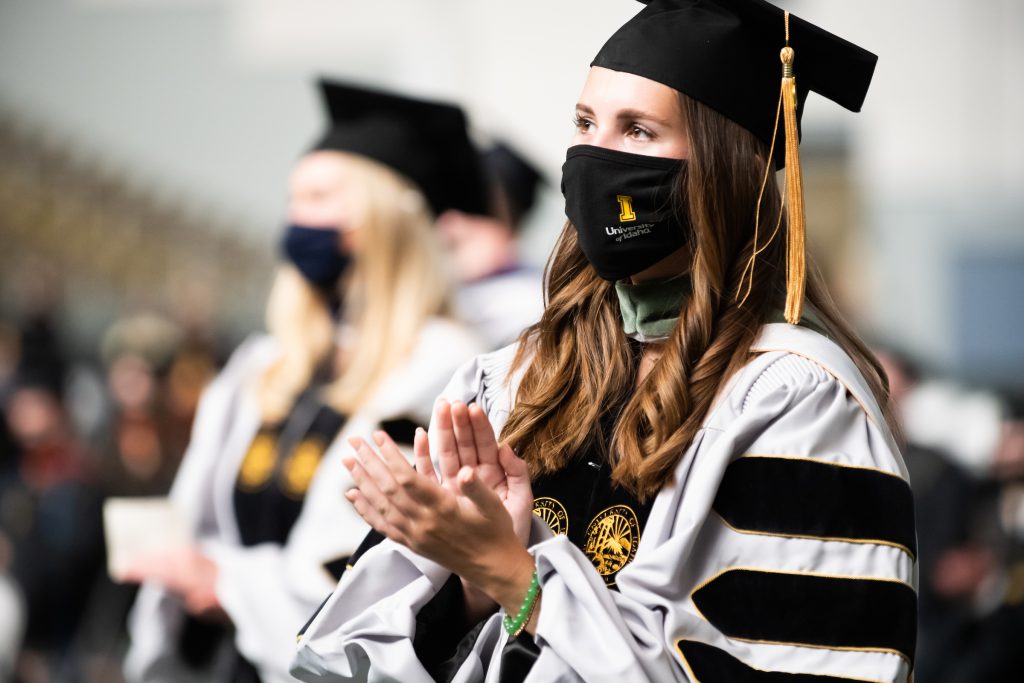Tradition and Change at the University of Idaho College of Law

Richard H. Seamon
Published September 2021
As I write this, less than a month remains before the University of Idaho College of Law welcomes its incoming class, the Class of 2024. I invite attorneys reading this to recall what law school class they were in. I was Class of 1986 myself and, perhaps like you, vividly remember the feelings of excitement, anxiety, and self-doubt that predominated on the eve of law school. I suspect that these eve-of-law-school feelings are shared by every incoming class since the College of Law opened its doors more than 110 years ago. Some things don’t change.
In contrast, the College of Law itself has changed in many significant ways since then. This issue highlights some of those changes.
Let us start with most exciting one: the College is blessed with a new dean, Johanna Kalb, who as of May 2021 succeeded the College’s former dean, Jerry Long, in whom the College was also blessed. Just in her short time on the job, Dean Kalb has infused the College with new energy and ideas. And, as Dean Kalb’s article shows, that energy will be channeled—and those ideas will be informed—–by an understanding of the distinctive duties of a land grant law school. In this way, change will be rooted in worthwhile, longstanding traditions.
The duties of a land grant law school, as Dean Kalb writes, include productively engaging with all the communities that a land grant law school serves; giving students practical knowledge and skills; and addressing access-to-justice challenges. All three duties are carried out in major ways by the College’s legal clinics, which are the subject of three other articles in this issue.
John Hinton writes about the Entrepreneurship Law Clinic, which is based in Boise and vitally connected to the Treasure Valley’s incredibly vibrant business community. This clinic gives students valuable transactional lawyering skills and serves startups and other small businesses in need of legal services.
Geoff Heeren describes the Immigration Clinic, which is based in Moscow and gives students valuable experience aiding an underserved community of clients in a growing area of legal practice.
Finally, Jessica Long describes the involvement of the College’s Main Street Law Clinic in lengthy, complex litigation on behalf of the needy residents of the Syringa Mobile Home Park outside Moscow. The litigation offered hands-on experience to more than two dozen law students, who also had the opportunity to collaborate with skilled attorneys in the Idaho bar.
Professors Hinton, Heeren, and Long have built upon the unsurpassable work of Professor Emeritus Maureen Laflin, recipient of the Idaho State Bar’s Distinguished Lawyer Award in 2020. Although the award reflects a career of many outstanding accomplishments, it would have been merited even if one considered only Maureen’s role in solidifying and expanding the College’s legal clinics. In large part through Maureen’s efforts, the clinics have become the crown jewel of the College’s experiential-learning curriculum. They continue to shine.
“There is a silver lining to this still-dark cloud.”
To stay with the subject of recent changes at the law school, many of those changes over the last year have been necessitated by the COVID-19 pandemic. There is a silver lining to this still-dark cloud. As a practical matter, it has forced the College to expand its proficiency with online technology, along with its capacity to serve our large, still relatively sparsely populated State. More to the point, as I try to show in my piece for this issue, the pandemic has demonstrated the continuing relevance and dynamism of the U.S. Constitution. One can be an originalist while still appreciating the extent to which that document was “intended to endure for ages to come,” and to which, as reformed by its 27 amendments and interpreted by the U.S. Supreme Court, it has “adapted to the various crises of human affairs.”[1]
The College is grateful for the opportunity to host this issue. On behalf of the College and my co-authors, I thank the Idaho State Bar, with special thanks to Tenielle Fordyce–Ruff, Jessica Harrison, Brian Kane, Elizabeth Mathieu, Diane Minnich, Kenny Shumard, and Zach Zollinger. I also thank those who have read this far, and to them I say: Don’t stop now; keep reading!

Richard H. Seamon is a professor at the University of Idaho College of Law who teaches constitutional law and other subjects. He welcomes your feedback at richard@uidaho.edu.
[1] McCulloch v. Maryland, 17 U.S. 316, 415 (1819) (emphasis in original).

